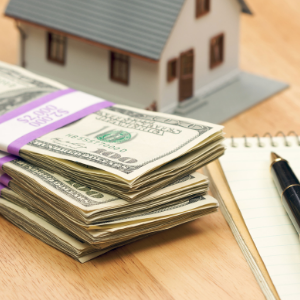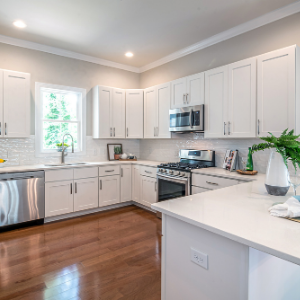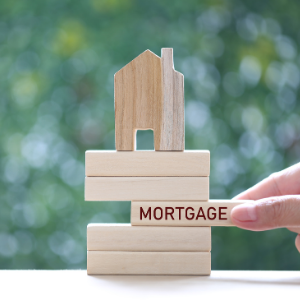
Understanding Home Equity: What It Means for Selling Your House
Understanding home equity is critical when selling a house in Charlotte, NC, since it can significantly impact your financial situation. Home equity is the difference between the current market value of your property and the outstanding debt on your mortgage.
Understanding how much equity you’ve amassed will help you estimate your prospective profit when you decide to sell. A larger home equity equals more cash after paying mortgage debts and selling charges.
Property appreciation, community growth, and regular mortgage payments can all help to increase home equity in Charlotte’s thriving real estate market. Sellers should consider these variables when making pricing selections and negotiating with possible purchasers.
Understanding the subtleties of home equity enables homeowners to leverage the value of their house when selling it properly.
Calculating Home Equity: A Step-by-step Guide for Homeowners

When planning to sell their Charlotte, NC, property, homeowners must grasp the components in accurately determining home equity. Begin by calculating your property’s current market worth, which can be done with a professional appraisal or by researching comparable home sales in the Charlotte region.
Once you’ve determined the market worth of your home, deduct any existing mortgage balances or liens on the property. This gap symbolizes your home equity, or the portion of your property’s value that you own.
For Charlotte homeowners, it is critical to include additional charges that may affect this estimate, such as prepayment penalties on existing loans or fees related to selling a home in North Carolina. Understanding these characteristics will help you make informed decisions about leveraging your equity during the sale process and optimize the financial rewards of selling your property in the competitive Charlotte real estate market.
Factors Affecting Home Equity in the Charlotte, NC Real Estate Market
Understanding the elements influencing home equity in the Charlotte, NC real estate market is critical for homeowners trying to sell their property. Home equity is generally determined by the property’s current market value and outstanding mortgage balance.
Property values in Charlotte, a quickly growing city, can fluctuate due to various factors, including local economic conditions, neighborhood development projects, and demand fluctuations. The burgeoning job market and population growth have raised house demand, frequently driving up property values and increasing home equity.
Furthermore, interest rates play an essential role; lower interest rates can increase buyer affordability, thus rising property values and equity. Renovations and upgrades also impact home equity by increasing the home’s total value.
However, excessive improvements may not result in proportional increases in market value. Furthermore, external issues such as zoning regulations or changes in school district ratings can substantially impact property appeal and value in Charlotte’s different neighborhoods.
Understanding these factors enables homeowners to maximise their home equity while planning to sell in this thriving real estate market.
The Effect of Local Market Trends on Home Equity in Charlotte, NC
Understanding the impact of local market trends on home equity is critical for homeowners trying to sell their house in Charlotte, NC. The real estate market in Charlotte has seen substantial variations, which can dramatically influence the amount of equity a homeowner owns.
Rising property values, buyer demand, and neighborhood developments significantly impact home equity. As the city’s attractiveness and economic prosperity have grown, Charlotte’s housing market has seen home values rise in recent years.
As more people migrate to the neighborhood, demand for housing rises, driving up prices and increasing home equity for current homeowners. Furthermore, infrastructure investments and urban development initiatives can boost community appeal and increase property values.
However, it is critical to be updated about any market movements that may impact these dynamics. Keeping an eye on local trends might help homeowners determine when to sell to maximize their return based on current home equity levels in Charlotte’s thriving real estate market.
How to Determine the Right Time to Sell Your House in Charlotte, NC
Determining the best timing to sell your Charlotte, NC home requires careful consideration of various aspects influencing your home equity and overall profit. The local real estate market circumstances are critical; knowing whether you are in a seller’s or buyer’s market will significantly influence your decision.
In a seller’s market, where demand outweighs supply, you may receive greater offers and sell more quickly. Consider the seasonality of the home market; spring and summer tend to draw more buyers, which can lead to better deals.
It’s also important to consider personal circumstances, such as financial stability or life events like work relocations or family requirements, which may necessitate selling. Monitoring mortgage interest rates is critical since rising rates might limit buyer affordability and demand.
Monitoring neighborhood developments in Charlotte, such as new facilities or infrastructure improvements, can increase home prices and influence timing decisions. Consulting with real estate pros who understand current trends and forecasts in Charlotte can help you maximize your home equity when selling.
If you want to skip the hassle of listings, showings, and repairs, Zack Buys Houses offers a fast, hassle-free solution. They buy homes for cash in Concord and nearby areas, often closing in just days—making it easy to sell your Charlotte house fast and keep your equity intact.
Evaluating Buyer’s Market vs Seller’s Market: Timing Your House Sale
Understanding the nuances of the buyer’s and seller’s markets is critical when considering selling your Charlotte, NC property, as they can significantly impact your equity. In a buyer’s market, where there are more homes for sale than buyers willing to buy, sellers may have difficulty getting offers at their targeted price points.
In this context, homeowners must often be flexible with pricing or explore additional incentives to entice buyers, which may impact their equity gains. In contrast, limited home inventory combined with high demand in a seller’s market can result in aggressive bidding wars among buyers.
This scenario frequently enables sellers to reach higher sale prices, maximizing their home’s equity potential. Timing your home sale carefully by analyzing market conditions will help you maximize your return on investment.
Understanding local real estate trends and talking with competent agents may help you determine if the current climate in Charlotte favors buyers or sellers, and what that implies for maximizing your home equity when you sell.
Maximizing Your Home’s Value Before Selling: Tips for Charlotte, NC Residents

To optimize the value of your Charlotte, NC, property before selling, prioritize necessary improvements that attract buyers and increase equity. Begin with improving your home’s curb appeal, as first impressions are essential; consider landscaping renovations and a new coat of paint for the exterior.
Kitchen and bathroom upgrades should be prioritized because they substantially impact buyer interest and perceived value. Updating fixtures, adding new paint in neutral tones, and installing modern appliances may all make a big difference.
Addressing necessary repairs swiftly is critical to avoiding potential buyer worries during inspections. Energy-efficient renovations, such as greater insulation or energy-saving windows, increase value and appeal to environmentally conscientious consumers looking to decrease utility expenses.
Decluttering and decorating your property with modern furniture will help buyers imagine themselves living there, increasing its appeal in the competitive Charlotte market.
Essential Renovations to Boost Home Equity Before Selling in Charlotte, NC
Focusing on necessary upgrades will dramatically increase your home equity and appeal to potential buyers when preparing to sell your home in Charlotte, NC. Improving curb appeal with landscaping and fresh exterior paint is one of the most dramatic changes, since it can make a lasting first impression.
Inside the property, renovating the kitchen and bathrooms may typically result in a high return on investment; consider installing modern fixtures, energy-efficient appliances, and new countertops to add value. Replacing outdated flooring with hardwood or high-quality laminate creates an upscale appearance that appeals to discriminating consumers.
Furthermore, making your home more energy efficient by improving insulation or installing smart thermostats appeals to environmentally aware purchasers while adding significant value. In today’s market, open floor plans are in high demand, so removing non-structural barriers to create more large living rooms can significantly increase the value of your home.
By prioritizing these smart upgrades before selling in Charlotte’s competitive real estate market, homeowners can increase the equity of their property and earn a higher sale price.
Staging Strategies to Improve Curb Appeal and Increase Sale Price
Strategic staging strategies can significantly improve curb appeal and attract potential buyers, thus increasing the sale price of your Charlotte, NC home. Begin by focusing on landscaping, as a well-kept lawn with brilliant flowers and neatly manicured shrubbery makes a positive first impression.
Consider repainting the exterior with neutral hues to give your property a new look that appeals to various interests. Updating outside fixtures like lighting, door handles, and house numbers can provide a modern touch without breaking the bank.
Consider painting or replacing the front door with a striking yet stylish color for maximum impact. Adding ornamental features such as planters or seasonal wreaths can enhance the attractiveness.
By designing an appealing façade, you can draw attention and increase perceived value, enhancing your chances of selling your home at a desirable price point in the competitive Charlotte real estate market.
Pricing Strategies: Determine the Best Asking Price for Your Charlotte Home
Understanding home equity requirements is critical when determining the appropriate asking price for your Charlotte house. Pricing plans must be carefully created to fit the dynamic Charlotte real estate market.
A competitive asking price can attract potential buyers and result in a faster sale, whilst an inflated price may discourage interest. Consider current market trends, previous sales of comparable houses in Charlotte, and your property’s unique attributes when determining an appropriate price point.
Additionally, assessing your home’s present equity position can provide information on pricing flexibility. Consulting with a local real estate specialist who understands the peculiarities of the Charlotte home market can help you fine-tune your pricing plan.
Using this information, sellers can set a reasonable and appealing asking price that reflects the worth of their home while meeting equity requirements.
Understanding Real Estate Agents and Their Role in Selling Homes in Charlotte, NC
Understanding the role of real estate agents is critical for navigating the complexities of the local housing market when selling a house in Charlotte, NC. Charlotte real estate brokers have extensive knowledge of current market trends and can provide essential insights into house equity requirements, allowing sellers to set realistic pricing expectations.
These pros may help efficiently prepare homes to attract potential purchasers and strategically market listings to enhance visibility. They also handle negotiations and documentation, ensuring that all legal and financial issues are adequately addressed.
Real estate professionals in Charlotte advise homeowners through every stage of the selling process, from initial listing to final closing, while capitalizing on home equity prospects. Their experience streamlines procedures and makes selling a home easier and more profitable.
Negotiation Tips for Getting the Best Offer on Your Home in Charlotte, NC
When selling your Charlotte, NC home, it is critical to understand home equity requirements to negotiate the best offer. Research the local real estate market to determine what comparable properties sell for.
This knowledge enables you to set a competitive asking price, ensuring that your home appeals to prospective purchasers. Highlighting your property’s distinguishing qualities might increase its perceived value during negotiations.
Be receptive to proposals, but stick to your bottom line while keeping your equity goals in mind. Consider employing an experienced real estate agent familiar with Charlotte’s market characteristics to assist you in negotiating conditions that maximize your return on investment.
Flexibility with closing dates or modest repairs may excite buyers, resulting in more favorable bids while protecting your hard-earned equity.
Understanding Closing Costs and Their Effect on Net Proceeds From a Sale
Getting a firm grasp on closing costs is essential for any Charlotte homeowner who wants to nail down what they’ll pocket when their house sells. Closing costs pile up toward the finish line of a real estate deal and typically cover several necessary fees.
Real estate commissions, title insurance premiums, attorneys’ fees, and state transfer taxes will be seen. Don’t forget to factor in any mortgage balance still owed. That number directly affects your home’s equity and is in the final tally.
By entering these charges into your equations, you have a clearer picture of the final payout, which is vital for solid financial planning. Armed with an accurate estimate, you’ll be in a much stronger position to redeploy that cash, whether you’re eyeing a second home, an investment property, or any other reinvestment opportunity.
Keep an eye on local market shifts and remember that some closing fees are negotiable. Talk to your buyer or agent and see if there is any wiggle room to reduce the bite. When you understand all the moving parts, you can confidently interpret that final bottom line when the deal closes in Charlotte’s competitive market.
How Mortgage Payoff Impacts Your Net Gain from a House Sale

Selling your Charlotte, NC home means clarifying how your mortgage payment affects what you ultimately keep. Your equity is the part of the value you own in your property.
Before you see any cash in your pocket, the mortgage balance gets paid off with the sale proceeds. A big remaining balance means less money left over once closing costs and other fees are settled.
Picture this: your house sells for $300,000 and the mortgage is still $200,000. After covering agent commissions and maintenance bills, you’re left with $100,000 for your pocket. Knowing what you still owe and what you expect the sale price to be, you can guess how much equity will move into your bank account.
That insight lets you set sensible financial targets and map out the next move, whether investing, buying another home, or other plans.
Tax Implications of Selling Your Home with Existing Equity in North Carolina
Selling a home in Charlotte means paying close attention to what the home equity you built means for your taxes. Home equity is simply what your house is worth today minus what you still owe your mortgage lender.
In North Carolina, you could pay capital gains taxes if you profit beyond $250,000 as a single filer or $500,000 as a married couple filing together. The IRS allows you to avoid taxes on that profit if you meet specific living requirements—specifically, you must have lived in the house for at least two of the past five years to qualify.
Don’t forget that any big renovations you made while living there can be added to what the house originally cost you, increasing your basis and lowering the profit that gets taxed. Knowing how the numbers work can make a big difference if you want to keep as much of your equity as possible while following North Carolina’s tax rules.
Before you list, it’s smart to sit down with a local tax professional. They can explain exactly what your home equity means for your tax bill when you sell.
How Much Equity Should I Have Before Selling My House?
Before you decide to sell your home in Charlotte, NC, you must understand how much equity you have. Equity represents the gap between your house is worth today and what you still owe on the mortgage.
When listing the property, aim for at least 20% equity. This cushion covers closing costs and agent commissions and gives you a solid financial return after the sale.
Charlotte’s fast-moving market means home values can shift quickly, so you’ll want to look at the recent sale prices of similar houses in your area. Factor in any upgrades, like a new kitchen or an added bath, that could have improved your home’s worth.
Confirming that your equity is substantial lets you handle negotiations with confidence. Whether you plan to buy another property or reach another financial milestone, a healthy equity position puts you in a better place to succeed with your sale.
What Happens When You Reach 20% Equity?
Hitting the 20% equity mark in your Charlotte, NC home feels like a small victory lap on the road to full ownership. It means you’ve chipped away enough mortgage principal to own one-fifth of your home free and clear.
Once you’ve crossed this threshold, your selling options get sharper. With 20% equity in your corner, you can drop private mortgage insurance (PMI), which lightens your monthly payment load and can pad your bottom line when it’s time to sell. The money you save on PMI can go straight to your next down payment or cover moving costs.
This level of equity isn’t just a nice round number; it changes how you approach a sale. Higher equity means you can negotiate more confidently and use that strong position to score favorable financing when eyeing your next Charlotte property. The equity bump can also nudge your credit score higher, which is a slight but helpful boost in a competitive market.
Grasping what it means to reach 20% equity isn’t just about bragging rights; crafting a more innovative, profitable selling strategy when you hand over the keys.
How Much Does the Average Homeowner Have in Equity?
When you’re getting ready to sell a house in Charlotte, NC, you must have a clear picture of your homeowner equity. Because of steady home price appreciation and ongoing mortgage payments, most homeowners find they’ve built up a healthy equity cushion.
Most Charlotte homeowners see equity in the 40% to 60% range when they have owned their homes for several years. The local market’s price growth and shrinking mortgage balances drive this healthy equity.
That equity is not just a number on a statement; it’s your financial safety net and a powerful negotiation tool. Knowing your exact equity position lets you set a listing price that attracts buyers while still protecting your bottom line, and it arms you with the facts you need to negotiate confidently.
When you know exactly how much equity you have, you can make decisions that put the most cash in your pocket at closing and lead to a profitable sale.
How to Calculate How Much Equity in a House?
To determine the equity of your house in Charlotte, NC, start by deciding how much the home is worth. You can hire an appraiser or look up what similar homes in your neighborhood have recently sold for.
After you have that market value, subtract the remaining balance on your mortgage and any other loans tied to the property. What you’re left with is your home equity.
Knowing that number is essential if you plan to sell. It directly shapes how much you can pocket after the closing table and how you should price the house. Buyers will pay attention to equity, especially in negotiations, since it affects how much down payment they might need.
When you nail down your equity number, you empower yourself to price and market the home wisely, helping you get the best return on your Charlotte investment.
No matter your equity position or timeline, Zack Buys Houses offers a reliable, no-stress way to sell your Charlotte home fast for cash, so you can move forward with confidence and peace of mind. Contact us at (704) 769-0141 for a no-obligation offer today!
Helpful Charlotte Blog Articles
- Selling Your Charlotte Home After A Few Years
- Optimal Seasons For Selling A Home In Charlotte, NC
- Navigating a Reverse Mortgage Sale in Charlotte, NC
- Selling A Mold-affected House In Charlotte, NC
- Comprehensive Guide To Replumbing Your Charlotte Home
- Selling A Water-Damaged House In Charlotte, NC
- Selling Inherited Property In Charlotte, North Carolina
- Selling Your Duplex In Charlotte, NC Quickly And Profitably
- Selling Jointly Owned Real Estate In Charlotte, NC
- Selling Inherited Property In Charlotte, North Carolina
- Understanding Charlotte, NC Property Tax Rates
- Guide To Selling A House With Asbestos In Charlotte, NC
- Understanding Home Equity Requirements For Selling Your Charlotte, NC House

| TAR HEEL STATE | LOAN APPLICATION | LENDERS | CHARLOTTE, NORTH CAROLINA | MORTGAGE LOAN | HOMELIGHT |
| LOAN-TO-VALUE | LTV RATIO | LTV | COMBINED LOAN-TO-VALUE | CLTV | BANKING |
| EQUITY LOANS | HOME EQUITY LOAN | AMERICA | U.S. | MONEY | HOME EQUITY LINE OF CREDIT |
| HELOC | REFINANCING | REFINANCE | BANK OF AMERICA CORPORATION | BANK OF AMERICA, N.A. | BANK OF AMERICA |
| CONSUMERS | HOME APPRAISAL | MEDIAN HOME PRICES | LINES OF CREDIT | LINE OF CREDIT | FSBO |
| DOWN PAYMENT | HOMEBUYERS | DATA | PROPERTY TAXES | ESTIMATOR | BROKERAGE |
| APPRAISER | POLICY | PERCENTAGE | INVESTMENT ADVISER | CREDIT SCORE | CREDIT CARD |
| CONFIDENCE | BLOG | BALLPARK | TERMS OF USE | RENTER | PRIVACY |
| NET WORTH | NATIONAL ASSOCIATION OF REALTORS | MULTIPLE LISTING SERVICE | MLS | MARKET DATA | HOA |
| HOME INSPECTION | HOME IMPROVEMENTS | FORECLOSURE | FINANCE | DOLLAR | CONCESSION |
| COLLATERAL | CALCULATOR | BIT | BEDROOMS | A HOME EQUITY | HOME EQUITY LOAN |
| LOCAL REAL ESTATE AGENT | YOUR REAL ESTATE AGENT | A COMPARATIVE MARKET ANALYSIS | HOME EQUITY LOAN OR | A HOME EQUITY LOAN |
